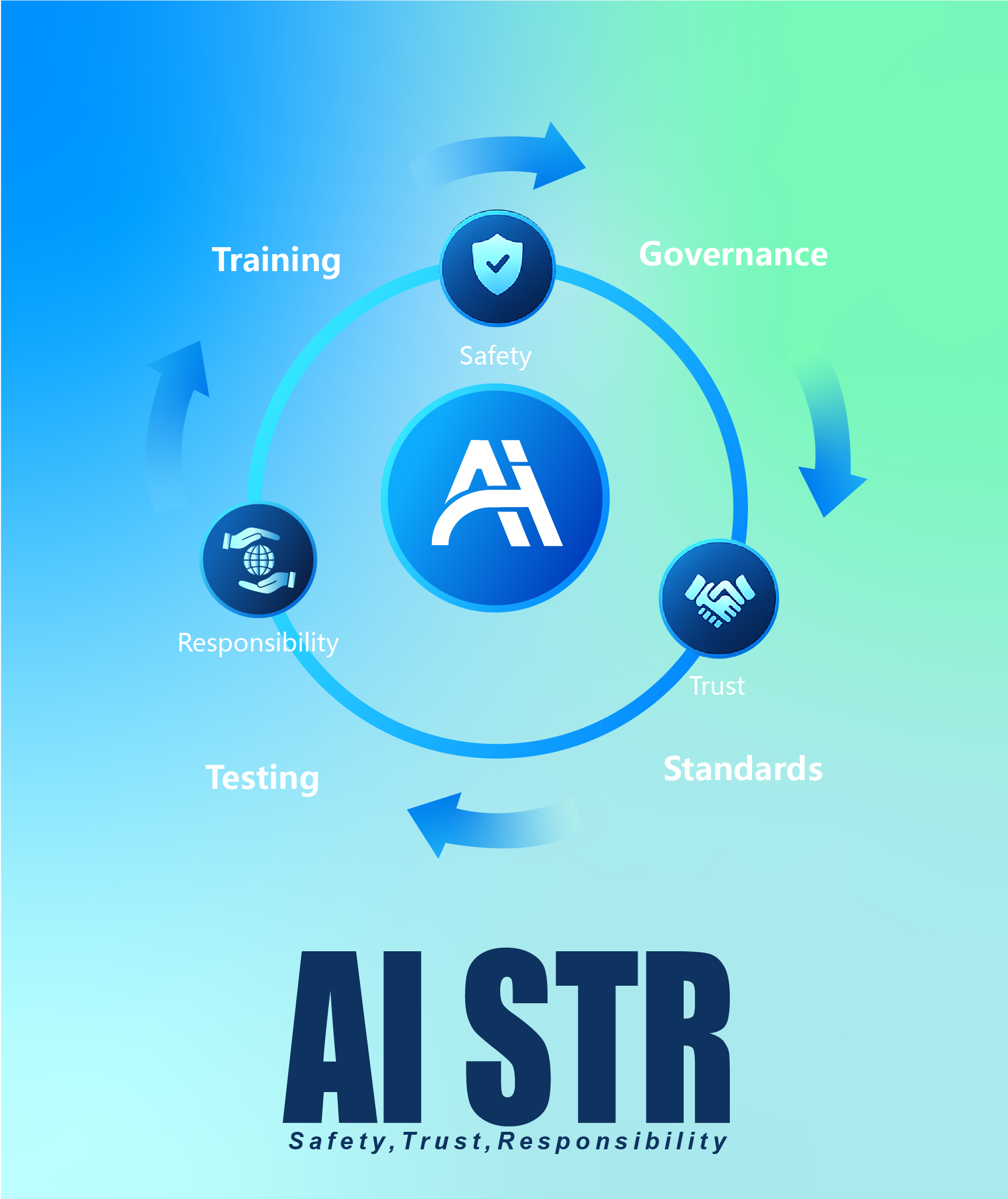
Background
AI STR program, originating from the World Digital Technology Academy (WDTA), an international organization dedicated to advancing digital technologies globally, embodies a pioneering effort to address the intricate challenges associated with the proliferation of artificial intelligence (AI) systems. In response to the exponential growth and integration of AI technologies across industries, the AI STR program stands as a pivotal initiative at the forefront of global technological advancement.
The AI STR program is a comprehensive framework that acknowledges AI's transformative potential while prioritizing ethical standards, risk mitigation, and societal well-being. It transcends national boundaries and corporate interests, advocating for globally unified standards and governance mechanisms. By emphasizing technical security and cybersecurity measures, it aims to instill confidence in AI technologies and mitigate risks posed by malicious actors. Additionally, from a societal perspective, AI STR addresses broader implications such as job displacement, algorithmic bias, and privacy concerns, promoting responsible AI deployment for equitable outcomes.
Objectives
This project aims to assist various stakeholders, including governments, businesses, scientists, and technical professionals:
Enhance Understanding of Future AI Development: Understand the potential and impacts of future developments in artificial intelligence (AI) technology.
Identify AI Technology Risks and Implement Corresponding Measures:Identify potential risks associated with AI technology and implement appropriate measures to mitigate and manage them.
Maximize AI Benefits for the Digital Economy: Fully harness AI technology to drive the development and growth of the digital economy.
Minimize AI's Societal Impact:Minimize negative societal impacts of AI technology, including changes in employment, social inequality, and privacy concerns, by providing guidance and support to stakeholders.


Activities
Conduct Workshops and Training Sessions: Organize workshops and training sessions to educate stakeholders on the potential and impacts of future AI developments, as well as the risks associated with AI technology.
Risk Assessment and Mitigation Workshops: Facilitate workshops to help stakeholders identify and assess potential risks associated with AI technology and develop strategies to mitigate them effectively.
Industry Collaboration and Research Partnerships: Foster collaboration between governments, businesses, academic institutions, and research organizations to conduct research and develop solutions aimed at maximizing the benefits of AI for the digital economy while minimizing its societal impact.
Certification and Accreditation Programs: Establish certification and accreditation programs to verify AI systems' compliance with safety, trustworthiness, and responsibility standards, providing assurance to stakeholders and consumers.
Link to the SDGs
The AI STR program aligns with the Sustainable Development Goals (SDGs) by promoting responsible AI development and deployment.
By maximizing AI's benefits for economic growth (Goal 8), fostering innovation and infrastructure (Goal 9), addressing societal impacts (Goal 11), advocating for responsible consumption and production (Goal 12), and fostering partnerships for global cooperation (Goal 17), AI STR contributes to advancing the broader agenda of sustainable development outlined by the United Nations.











